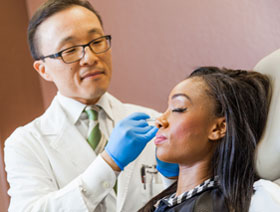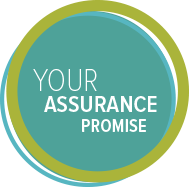 The short answer is– yes, you
The short answer is– yes, you
There are a number of things you can do to reduce your risk of developing skin cancer as well as other types of cancers. Some are obvious (like wearing sunscreen), but others are less so. Let’s take a look at the top recommendations for reducing your skin cancer risk.
- Avoid prolonged sun exposure. One common cause of skin cancer is prolonged exposure to the damaging ultraviolet rays of the sun. When UV rays break down DNA in the skin, normal skin cell production is compromised. The broken DNA sends a message to the cell to reproduce over and over again, creating a tumor. To protect yourself, avoid being out in the sun between 10AM and 4PM, when the sun’s rays are the strongest. Use a sunscreen with an SPF of 15 every day. Go for SPF 30 or higher if you plan to spend a lot of time outdoors. Sunscreen should be applied 30 minutes before going outside, every two hours after that, or right after swimming.
- Stay away from tanning beds. Tanning beds, also called solariums, are highly dangerous no matter what their marketing materials may tell you. The use of tanning beds is associated with the most deadly form of skin cancer– melanoma. Studies have shown that people who use a tanning bed for the first time before age 35 increase their risk of developing melanoma by a whopping 75 percent. And the more you use them, the more your risk increases.
- Eat right. Our bodies are designed to heal and maintain health. That is why when you catch a cold or the flu, you eventually recover. The vitamins and nutrients your body needs to maintain health come from the foods you consume. If you opt for a low-nutrient diet full of highly processed foods, your body’s immune system might not have what it needs to fight off disease, including cancer. Important nutrients like beta-carotene (found in orange and yellow vegetables), omega-3 fatty acids (found in fatty fish), selenium (found in Brazil nuts, eggs and meat), vitamin C (found in citrus and broccoli), vitamin D (found in fortified dairy, fatty fish and eggs), vitamin E (found in nuts and vegetable oils) and polyphenols (found in cloves, cocoa and fruits) are essential to fighting cancer. But it’s not just what you eat, but what you don’t eat as well that can make a difference. Foods associated with increased cancer risk include anything smoked, high-calorie sweetened drinks (like soda) and alcohol. Consume these foods only in moderation, or better yet, eliminate them altogether.
- Being overweight can increase blood sugar levels, and elevated blood sugar is associated with an increased risk of all kinds of cancers as well as diabetes. Adding 30 minutes a day of moderate exercise to your schedule can help you shed excess pounds, but you’ll also need to keep an eye on your nutrition. Exercise also reduces the risk of cancer by helping maintain healthy hormone levels, especially in women, and by boosting the immune system.
- Quit smoking. The link between smoking and cancer is very clear, and we aren’t just talking about lung cancer. Smoking has been linked to over 15 different types of cancers, including squamous cell carcinomas that form on the lips. Smoking causes damage to every organ in the body, and it inhibits healing. If you don’t smoke, don’t start. If you do, there’s no time like the present to leave this bad habit behind.
- Get regular skin checks. You can reduce your risk of developing a dangerous skin cancer by performing monthly self skin checks and seeing a dermatologist yearly for routine skin exams. If you have had skin cancer in the past, your doctor may want to see you more often. Catching skin cancer early means it’s easier to treat. Oftentimes, suspicious growths can be removed before they develop into cancer. While you may not be able to take back the sunburns of your past, whether or not to get skin checks now is something you can If it’s been awhile since you’ve seen us for skin a cancer screening, contact our office to schedule your appointment today!


